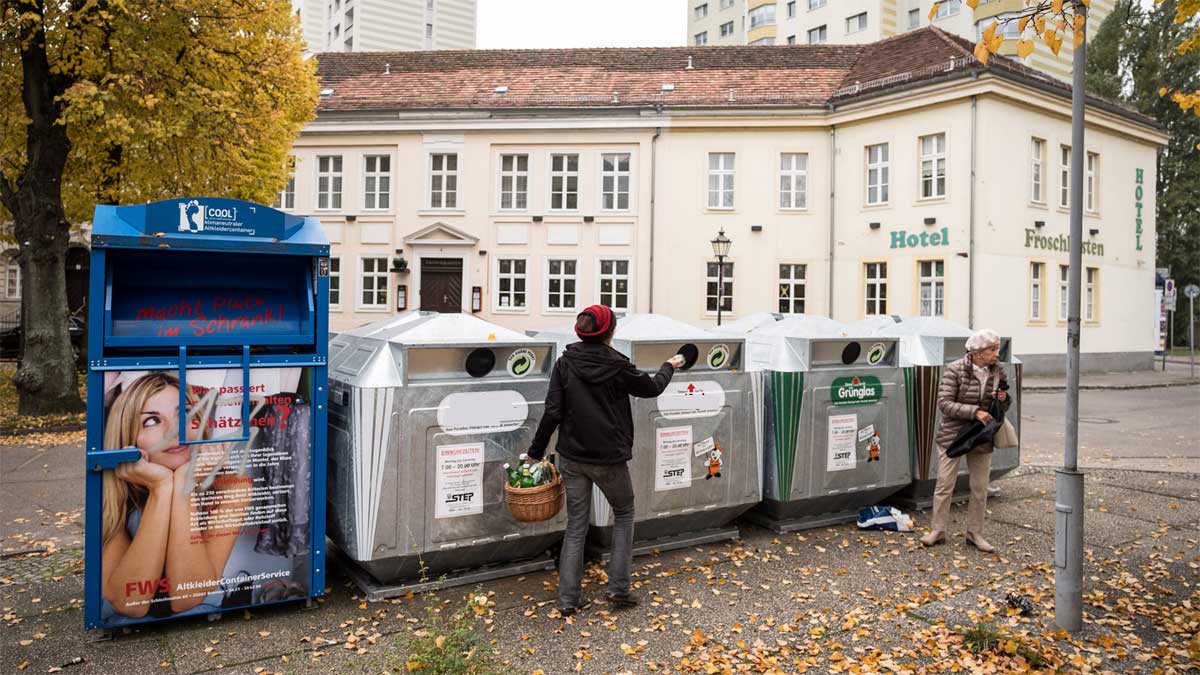Whether or not how extraordinary an organizer you are there will always be something at which you will be messed up, and guess what here it is a mess itself. Who thought that garbage can be a big problem too. But it becomes the biggest one when it is massive, however, there is always a solution to a problem!
Best Yet Effective Tips To Fill Your Skip Bin The Right Way:
Luckily you have landed on the right blog, here you will learn how to fill up your skip bins properly for all types of businesses and for home DIY projects too. But if none of these tips work you can always skip bin hire.
1: Avoid Air Pockets As Much As Possible
The air pockets increase the surface area which increases the chances of bad handling of the skip bins. So, it is advised to avoid the air pockets as much as you can and keep your bins tightly and nicely packed. However, between bulky items, you are slotting in smaller items that will allow you to get the most out of your transport costs. You are gradually filling up the skip. Why pay for air, after all?
2: Stop Loading Your Skip Bin Overfill
Bear in mind when filling a skip bin that it can’t be legally filled above the bottom. This is part of the health and safety laws of the government and transportation of any form of the waste container outside its dimensional limits is in fact illegal. Overfilled skip bins are dangerous for travel, so most businesses will not take the opportunity to pay heavy fines.
3: Choose the Right Skip Bin
You will need to figure out how many skips bin space you really require before hiring one for your business or need. Skip bins come in a number of sizes that accommodate a variety of applications, and prices depend on the cubic meterage you need. If your project requires you to collect all the things you are going to put in your skip in one place, begin by grouping them by size and shape so that you can determine where to go and how to make the best use of the room.
4: Know Your Wastes Types
It is very important to know your waste types before dumping off the waste. Such wastes like Asbestos, poisonous chemicals, flammable materials, large batteries, and medical waste are prohibited to put in the skip bin. Now that we have a clear understanding of waste that is forbidden to be dumped into skip bins, let’s look at qualifying ones now:
General waste such as; wood, clothes, glass, papers, toys, carpet, recyclable plastics, documents, and others
Green waste such as; grass, shrub, branches, barks, etc.
Bricks, concretes, and tiles
Clean fill/ soil such as; soil, dirt, and sand
Steel and aluminum
5: Check Weight Restrictions
Before deciding to hire a skip bin, take a look at this bit of relevant details. Each skip bin has a particular weight limit. Failure to do such research can cause you to exceed the bin’s weight limits. This could end up costing you more cash. If the waste you want to dispose of is high, it is best to double-check the weight limits in advance.
6: Thoughtfully Sort The Garbage
There are certain things that are considered to be added in the skip bin and others that are dangerous and therefore should not be allowed. Whether you are hiring a skip bin to remove garbage from your home or office you need to take care of the items and sorting the garbage has to be the utmost priority. A few of the safest items are as follows:
- Old furnishings, such as lounges, desks, chairs, and beds.
- Household general waste, such as books, packaging, plastics, and old toys
- Materials for building, including metal, wood, concrete, bricks, tiles, and gypsum board
- Computers, stereos, printers, speakers, TVs, and other unnecessary electrical products, including electronic equipment
- Office equipment, including tables, desks, chairs, and cabinets for filing
- Green waste such as weeds, branches, dead plants, old turf, stumps of trees and grass, and clippings of trees
A few of the items that shall not be in the bin:
- Paint
- Chemicals
- Batteries
- Asbestos
- Car tyres
- Flammable liquids
- Food items
Therefore, sorting the garbage is so important because many of the items can cause legal actions and might cause problems for your household works or business.
Pro Tip: Use The Length of The Bin Instead of Height
If you have ordered a skip bin of less than 8 cubic meters, you can start operating with a height range of 0.95 m – 1.3 m, assuming that the size of your skip bin is between 2 cubic meters and 6 cubic meters. That’s not much height to work with, depending on your project, particularly if you are working with long tree branches or wood planks, or other long materials.


